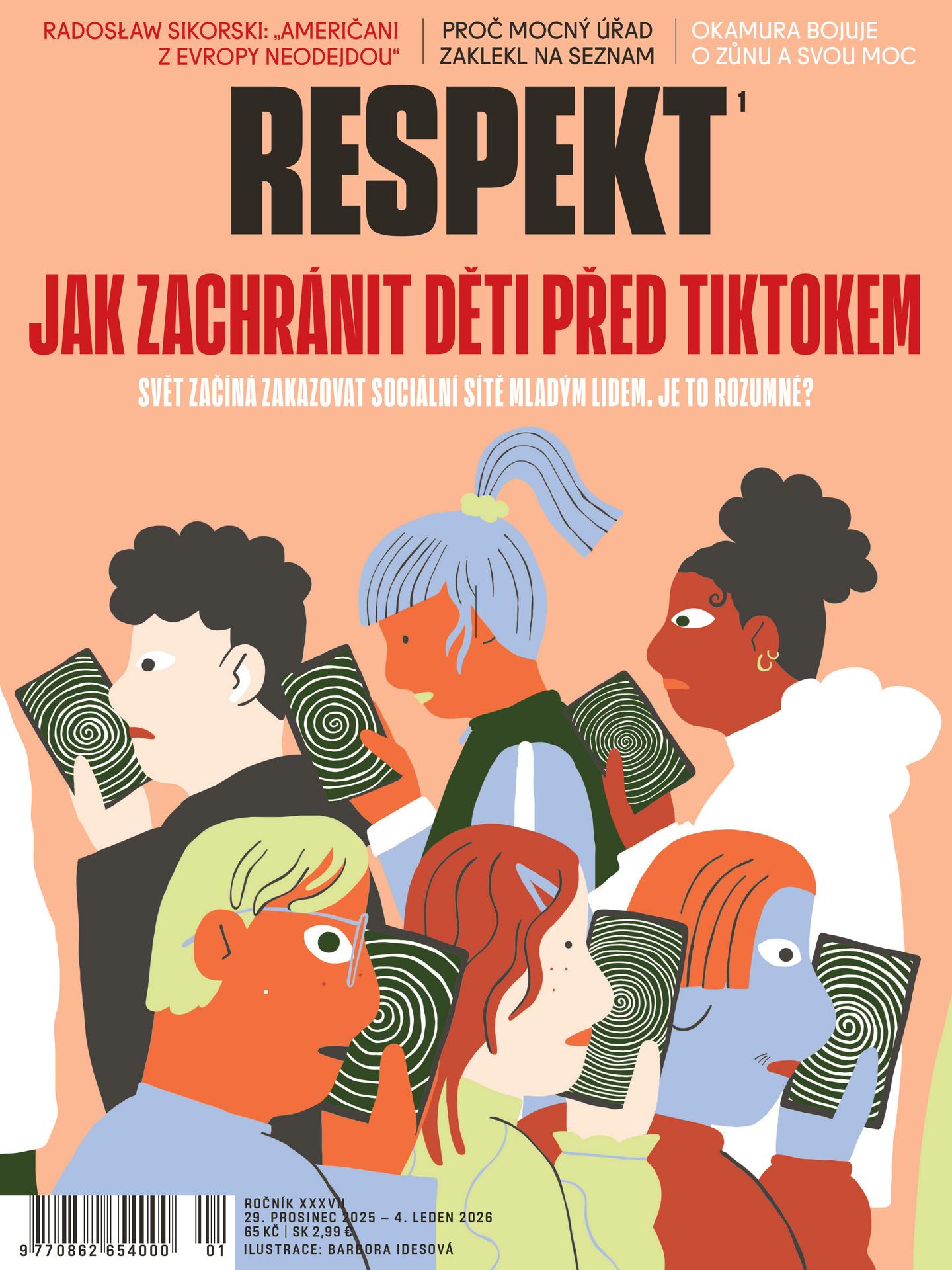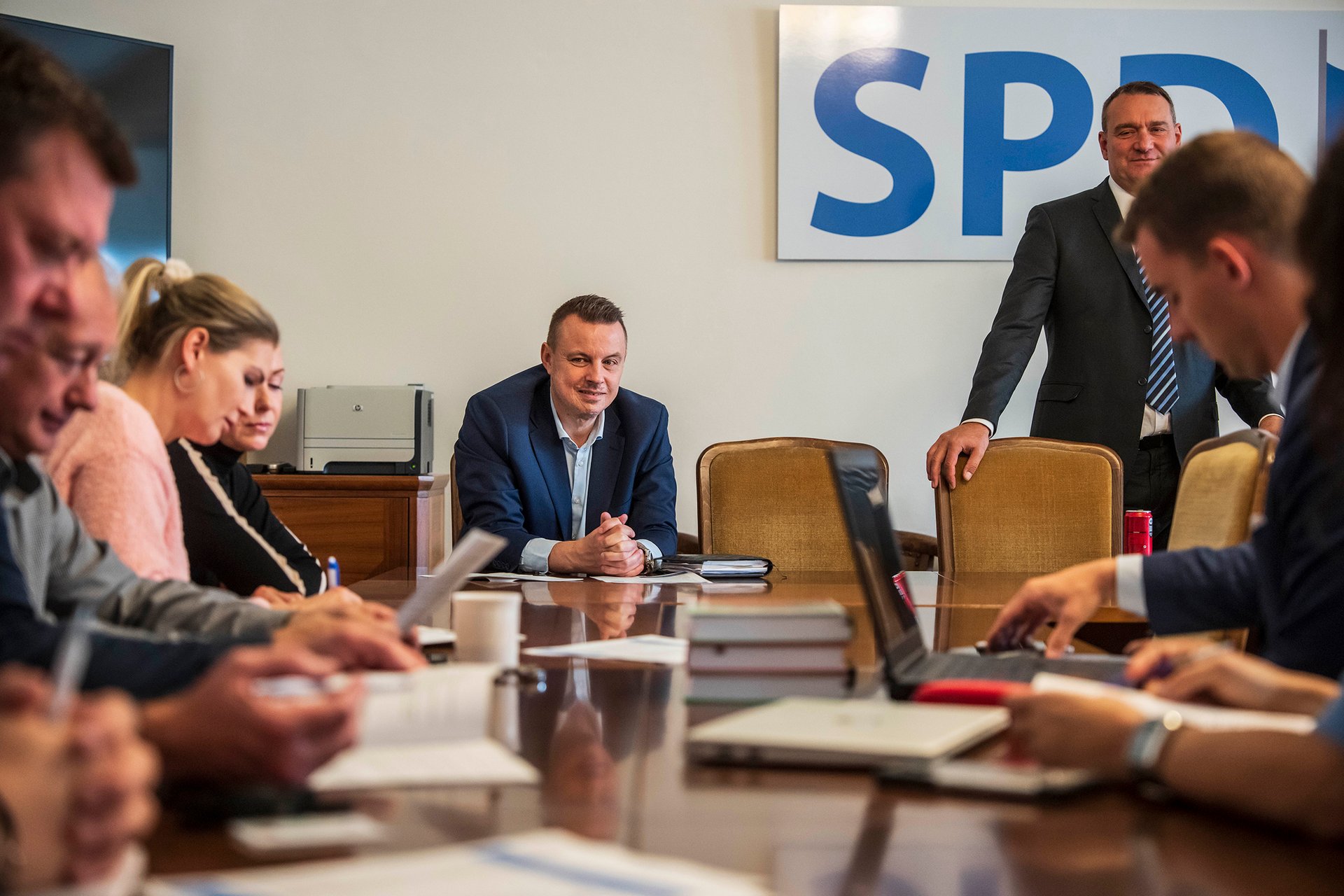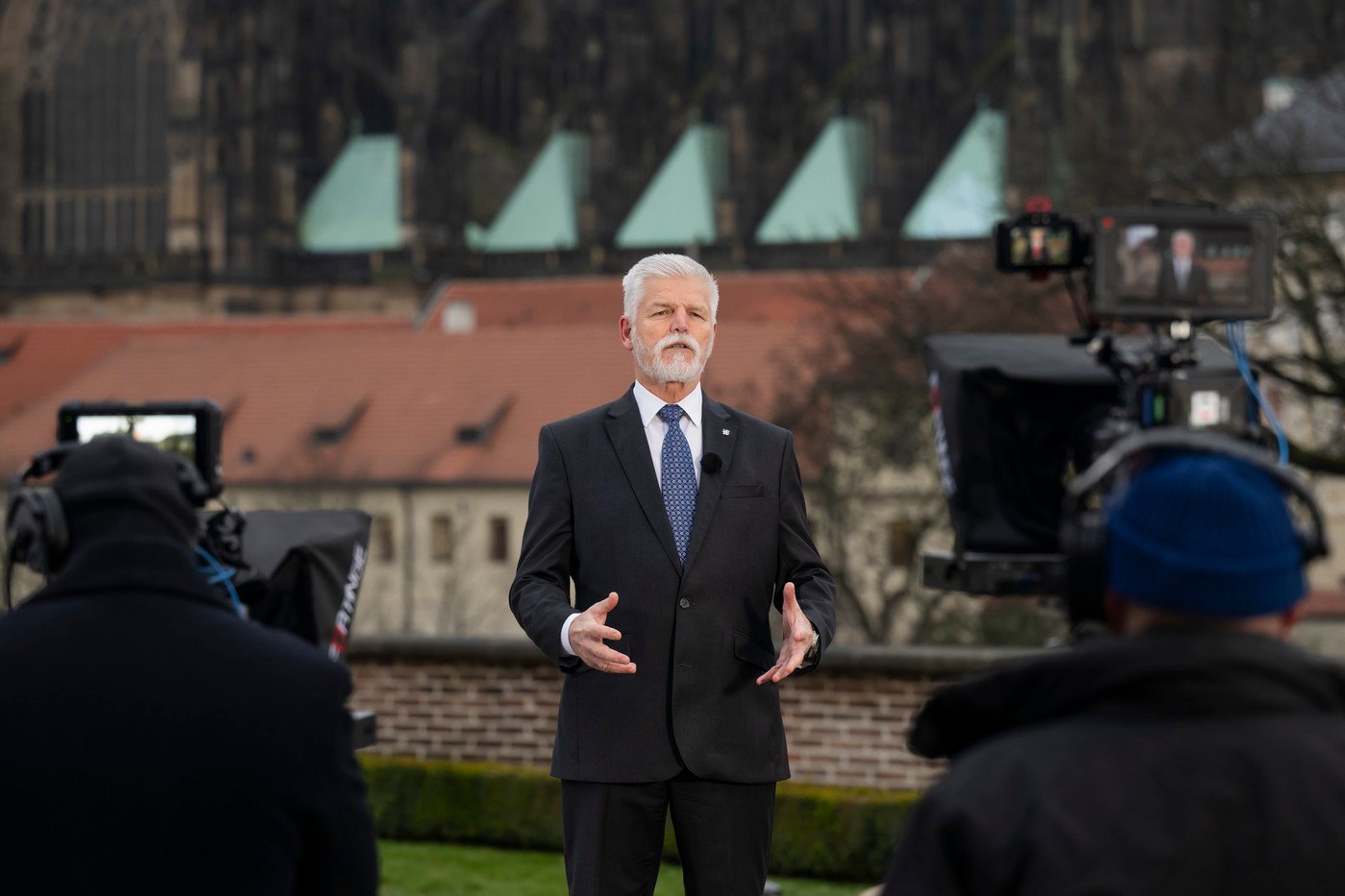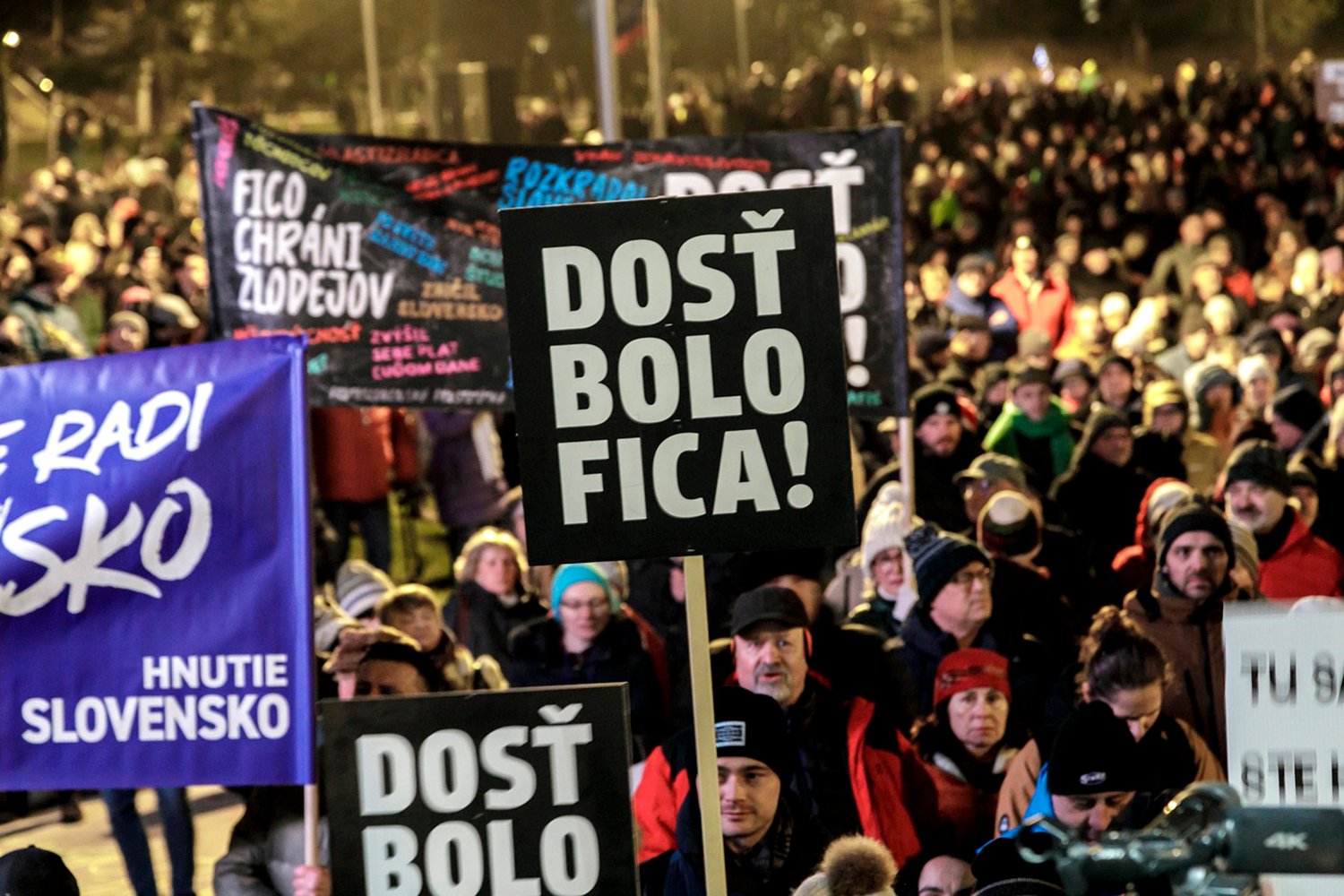European roads, made in China
The advent of Chinese companies has shaken up the civil engineering market in Poland, and aroused the interest of its Czech neighbours. The Chinese secret: cut rates, punctuality and using local manpower. Plus backup from Beijing, of course.

A group of men exit the house silently, pensively, and climb into a waiting car. Before slamming the door shut, one of them says in perfect English: “That’s not possible. You’ve got to call and make an appointment.” Then the car disappears down the labyrinthine streets of a residential neighbourhood. On the door of the house they just left there is no number or bell, but everything else suggests we’re at the right address. According to the official site of COVEC (China Overseas Engineering Group), this house in the Warsaw suburbs is headquarters for a European expansion that Beijing has been planning for a long time. After it won the bidding to build the A2 motorway in Poland, COVEC let it be known that it was interested in carrying out similar projects in other European countries, including the Czech Republic.
"We don’t know much about them. For the time being, there aren’t very many of them,” says Martin Hadaj, spokesman for the Polish Motorways Department, with a shrug: "in fact, I can’t even tell you yet whether they will come, and in the event that they were to come, how many of them would be there and whether they’d be bringing machinery along.” Unfolding multi-coloured maps of Poland on a big table, he adds: "We need hundreds of kilometres of new roads and we’re running out of time.”
Way ahead of the competition
Time is running short because Poland is co-organiser, along with the Ukraine, of the next European Football Championship in 2012. It’s a unique opportunity for this nation of 40 million to show the world the huge progress they’ve made in recent years. Poland is one of the few EU countries that was not cast headlong into a recession or a massive budget deficit by the crisis. And the Warsaw stock exchange, after some hesitation on investors’ part, has become one of the most prized European stock markets for its stability.
Poland only had about 40 km of motorways to show for itself when it joined the EU, but by 2013 it should have 900 km. Moreover, the Polish government eventually intends to build over 4,000 km of new motorways and fast lanes and to modernise 2,000 km of existing motorways. It was this series of calls for tenders that drew COVEC into the arena in mid-2009. COVEC is one of the biggest Asian corporations, and a major driver of Chinese expansion into the civil engineering sectors in neighbouring countries. "Its offer was 40% below the estimates, way ahead of the competition,” explains Martin Hadaj.
Cost of building a motorway has dropped
Nothing on the road site betrays the presence of COVEC, contrary to what one sees in the vicinity, where the company logos are adorned with flags: the yellow bulldozers here are thoroughly Polish, as are the subcontractors’ logos. "There is no Chinese machinery, no Chinese workers. Residents in the area were very anxious about that,” observes Pavel Osovski, a consultant from Warsaw, who is working for the Chinese juggernaut. According to him, the Chinese engineers only show up on the Polish site from time to time to see how the work is coming along.
Nowadays, when Polish experts talk about the Chinese entry into the Polish market, they say it served above all as a catalyst, expediting the overhaul of the bidding system. „Before, there were only about 20 players in the Polish civil engineering market. Now there are 200,“ says Hadaj, pointing out that, thanks to the new competition, the cost of building a kilometre of motorway has dropped by a third in the space of few years.
Financial and political backing from Beijing
The prospect of Chinese engineering companies moving into the market is causing a stir down in Prague, where the advent of the Chinese is generally welcomed in political circles. Vít Bárta, Czech minister of transport, believes that what is happening in Poland – even if the results are as yet entirely unknown – could be a source of inspiration. The point is, calling in Chinese companies may be a chance to escape the curse of endemic corruption that pervades the roadbuilding business in the Czech Republic.
However, there are risks involved in giving the Chinese a foothold in the civil engineering market. Chinese companies can offer such low prices chiefly thanks to financial – and political – backing from Beijing. In fact, the Chinese authorities control all the companies in the sector and want to see them expand as far as they can across Europe.
This article was translated by Presseurop.eu. Presseurop.eu is a Paris based news website publishing a daily selection of articles chosen from more than 200 international news titles, then translated into ten languages - English, German, French, Spanish, Romanian, Italian, Portuguese, Dutch, Polish and Czech.
Pokud jste v článku našli chybu, napište nám prosím na [email protected].










